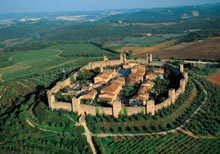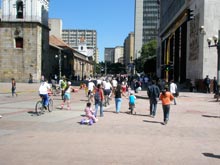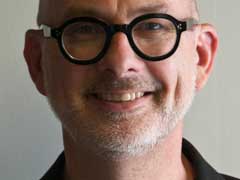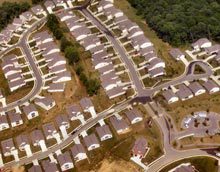
Beaufort was fortunate to have national known author, James Howard Kunstler, in town to speak recently. If you missed him, you owe it to yourself to spend some time looking over his writings and messages. Jim has been speaking and writing about the American condition since the early 90s with his book, The Geography of Nowhere, talking about the placeless building of the suburban condition and everyday American lives. His later book, The Long Emergency, published by the Atlantic Monthly Press in 2005, is about the challenges posed by the coming permanent global oil crisis, climate change, and other “converging catastrophes of the 21st Century.” This work correctly anticipated the meltdown and great recession, of which we are are still in the midst.
Jim’s message isn’t a pretty one in many cases. He talks about the depression we suffer from building placeless places, a kind of cultural nihilism that has been woven into everyday life. Think how different your individual life feels when you are in a place you love and a place that has distinct physical characteristics that reinforce where you are. The next generation of Americans is saddled with 40 years of misguided investment into auto-dependant communities, and throw-away buildings, none of which is worth loving. Does your quality of life matter, and does it depend on your built environment?
Oil addiction is a major problem. Jim spoke about Peak Oil, which is the point in time when the maximum rate of global petroleum extraction is reached, after which the rate of production enters terminal decline. Theories abound about when Peak Oil occurred, or will occur, but it is not debatable that the moment is, at best, close at hand. Mostly everything our current culture and daily life is built around is oil – from our food to our jobs to our schools – and that is all going to have to change, and it is.
Just recently, gasoline prices have risen again, heading back up towards the $4.00 mark. How will 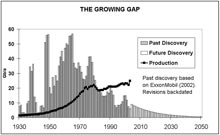 the American economy function with gas prices at $4 or $5 dollars a gallon? Jim doesn’t believe it will. How will chain retail stores and restaurants continue to function with their business models based on cheap, imported, oil-powered products and food? Will endless bowls of industrially farmed shrimp from China still be on the menu? Not likely. Relying on cheap airfare to bring in tourists to pump dollars into your local economy? Not for much longer.
the American economy function with gas prices at $4 or $5 dollars a gallon? Jim doesn’t believe it will. How will chain retail stores and restaurants continue to function with their business models based on cheap, imported, oil-powered products and food? Will endless bowls of industrially farmed shrimp from China still be on the menu? Not likely. Relying on cheap airfare to bring in tourists to pump dollars into your local economy? Not for much longer.
To break the oil addiction, we must return to localism and smaller scale economies. Scale is important. Food costs are up to record levels adjusted for inflation. Why is that? Food has become an industry that needs diesel fuel more that sunshine and water. Eating in season and eating local food are ways to break the cycle. Support your local food producers and restaurants who use them, and in addition, grow your own!
Jim’s message and picture of what is happening is unpleasant, but our modern reality shows that changes are happening. How we choose to redirect our individual and collective investment is critical now; things are different and our choices now are the difference between years of struggle or years of new growth and independence. Hoping is not a substitute for a good strategy, and we cannot expect any “wishing upon a star” moments to occur. A magic invention or government program that will fix this is not coming. The solutions we all need are right in front of us: they are us and they are local.
This article was written for Lowcountry Weekly by the Congress for the New Urbanism – Carolinas Chapter. For more information, visit www.cnu.org

